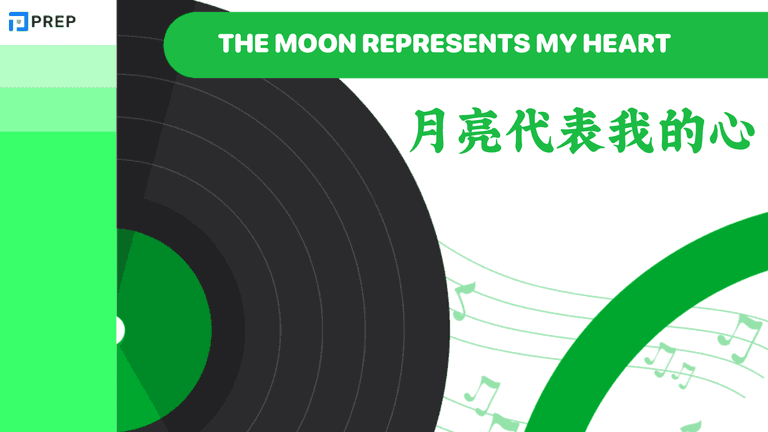Decoding Q in Chinese: The Ultimate Guide to Sound and Texture
The transition from phonetic theory to lexical application represents a critical phase in second language acquisition, particularly for sounds that lack direct equivalents in the learner's native phonological system. The following eight lexical items of q in Chinese have been selected based on their frequency distribution in modern Mandarin corpora, their functional diversity across grammatical categories, and their communicative necessity in basic interpersonal interactions.
Each entry demonstrates the q-initial sound within different phonological environments and tonal contexts, providing systematic exposure to the articulatory patterns you must internalize. By analyzing the phonetic realization of /q/ within these varied lexical contexts, you will develop both the motor control necessary for accurate production and the auditory discrimination skills required for comprehension in natural speech environments.
I. Two Different Meanings of Q in Chinese
When you encounter q in Chinese pronunciation or cultural discussions, you're actually dealing with two completely separate phenomena that happen to share the same Latin letter. This guide addresses both interpretations to ensure you find exactly what you're seeking.
Your search intent likely falls into one of these categories:
1. Linguistic Focus: You want to master the q in chinese letters system, specifically how to pronounce the aspirated sound represented by 'q' in Pinyin romanization. This sound appears in essential words like 请 (qǐng, "please") and 去 (qù, "to go").
2. Cultural Focus: You're curious about the texture term "Q" that describes the perfect chewiness in foods like bubble tea pearls, handmade noodles, and traditional fish balls—a concept that has revolutionized how people discuss food texture across Asia.
Each path offers unique insights into Chinese language and culture, so we'll explore both thoroughly to satisfy your curiosity completely.
II. How to Pronounce the Chinese 'Q' Sound Step-by-Step
Mastering the q in Chinese pronunciation requires understanding that this sound differs significantly from any English 'q' sound, instead resembling a strongly aspirated version of 'ch' in "cheese." The key lies in precise tongue positioning and controlled air release that creates the distinctive quality Chinese speakers recognize instantly.
-
Position Your Tongue Correctly
Flatten your tongue as if you're smiling widely, then press the broad surface against your hard palate while keeping the tip resting behind your lower teeth. This positioning creates the foundation for the sound's unique quality and distinguishes it from similar sounds in other languages.
-
Build Proper Air Pressure
Create a complete seal between your tongue and palate, allowing air pressure to build behind this barrier. You should feel slight tension as the air accumulates, preparing for the explosive release that characterizes proper q in chinese meaning and pronunciation.
-
Release with Strong Aspiration
Release the tongue contact while simultaneously pushing a sharp burst of air through your mouth. Hold your hand or a piece of paper in front of your mouth to test the aspiration—you should feel or see clear movement from the air puff, which distinguishes this sound from its unaspirated counterpart.
-
Practice the Complete Motion
Combine all elements in one smooth motion: tongue contact, pressure buildup, and aspirated release. The entire sound should feel crisp and decisive, with the aspiration occurring immediately after the initial contact release rather than as a separate breath.
III. 8 Common Chinese Words with the Q in Chinese
Now that you understand the mechanics of q in Chinese pronunciation, practical application through real vocabulary builds the muscle memory necessary for natural speech. These eight high-frequency words represent the most essential applications of this sound in daily Mandarin communication.
-
请 (qǐng) - Please/To Invite This fundamental politeness marker appears in countless daily interactions, making it perhaps the most crucial 'q' word for beginners to master. The sentence "请问,洗手间在哪里?" (Qǐngwèn, xǐshǒujiān zài nǎlǐ?) means "Excuse me, where is the restroom?" and demonstrates proper usage in practical contexts.
-
七 (qī) - Seven As a basic number, this character proves essential for telling time, discussing dates, counting items, and negotiating prices in markets or shops. The phrase "一个星期有七天" (Yī gè xīngqī yǒu qī tiān) translates to "There are seven days in a week," showing its application in time expressions.
-
去 (qù) - To Go This core verb enables discussion of movement, travel plans, and future activities, making it impossible to conduct basic conversations without mastering its pronunciation. "我明天要去北京" (Wǒ míngtiān yào qù Běijīng) means "I am going to Beijing tomorrow," illustrating its central role in expressing intentions.
-
钱 (qián) - Money Daily life requires constant reference to financial matters, from shopping and dining to business transactions and travel expenses. The question "这个多少钱?" (Zhè ge duōshǎo qián?) asking "How much does this cost?" demonstrates its practical necessity in commercial interactions.
-
起床 (qǐchuáng) - To Get Up This compound verb combining "rise" and "bed" appears frequently in discussions of daily routines, schedules, and lifestyle habits. "我每天早上七点起床" (Wǒ měitiān zǎoshang qī diǎn qǐchuáng) translates to "I get up at 7 AM every morning," showing its role in routine descriptions.
-
清楚 (qīngchu) - Clear/Distinct This versatile adjective proves invaluable for expressing understanding, asking for clarification, or describing the quality of communication. "你听清楚了吗?" (Nǐ tīng qīngchu le ma?) means "Did you hear that clearly?" and demonstrates its utility in ensuring effective communication.
-
秋天 (qiūtiān) - Autumn Seasonal vocabulary enables discussion of weather patterns, travel planning, and cultural observations throughout the year. "秋天是北京最美的季节" (Qiūtiān shì Běijīng zuì měi de jìjié) translates to "Autumn is Beijing's most beautiful season," illustrating its descriptive applications.
-
其实 (qíshí) - Actually/In Fact This adverb adds sophistication to speech by introducing clarifications, corrections, or the speaker's true perspective on situations. "其实,我不太喜欢喝咖啡" (Qíshí, wǒ bú tài xǐhuān hē kāfēi) means "Actually, I don't really like drinking coffee," showing how it enhances conversational flow.
IV. Frequently Asked Questions about Q in Chinese
1. What is a Chinese Q?
The term "Chinese Q" encompasses two completely different concepts depending on your context of interest. From a linguistic perspective, 'Q' represents a specific letter in the Hanyu Pinyin romanization system that transcribes a sound similar to English 'ch' in "cheese" but with strong aspiration.
From a culinary standpoint, q in chinese describes a desirable chewy, bouncy texture quality originating from Taiwanese food culture that has become widely adopted across Asian cuisine discussions.
2. What does Q mean in Chinese slang?
In contemporary Chinese internet culture, 'Q' frequently serves as slang meaning "cute" or "adorable," though this usage doesn't derive from the Pinyin sound system. This meaning emerged from two cultural sources: the Taiwanese Hokkien onomatopoeic word for chewy texture that sounds endearing, and the massive popularity of Tencent's QQ messaging platform, which fostered online communities where playful language like "Your new haircut is so Q!" became commonplace expressions.
3. How do I pronounce Q?
The q in chinese name system never sounds like the 'qu' in English words such as "queen" or "question." Instead, it closely resembles the 'ch' sound in "cheese" but requires a sharp, forceful puff of air immediately following the initial contact. To produce this sound correctly, press the flat surface of your tongue against your hard palate, build air pressure, then release with strong aspiration that you can feel on your hand held in front of your mouth.
4. What is QQ in Chinese?
QQ represents a massively popular instant messaging platform and web portal developed by Chinese technology giant Tencent that dominated digital communication throughout the 2000s and early 2010s.
While it maintained enormous user bases particularly among younger demographics and PC gaming communities, its role as China's primary social messenger has largely transferred to its sister application WeChat, though QQ continues serving specific user segments and maintains cultural significance in Chinese internet history.
V. Conclusion
Mastering q in Chinese opens doors to both precise pronunciation and cultural understanding that enriches your connection with Chinese language and society. Whether you're perfecting the aspirated sound that appears in essential daily vocabulary or appreciating the texture terminology that describes beloved foods, this knowledge provides authentic insights into how Chinese speakers communicate and experience their world.
Practice these pronunciation techniques regularly while exploring the cultural contexts where 'Q' appears, and you'll develop genuine fluency that goes beyond mere academic knowledge to embrace the living, evolving nature of Chinese expression.

Hi I'm Chloe, and I am currently serving as an Product Content Administrator at Prep Education. With over five years of experience in independent online IELTS study and exam preparation, I am confident in my ability to support learners in achieving their highest possible scores.
Comment
Premium content
View allPersonalized roadmap
Most read












